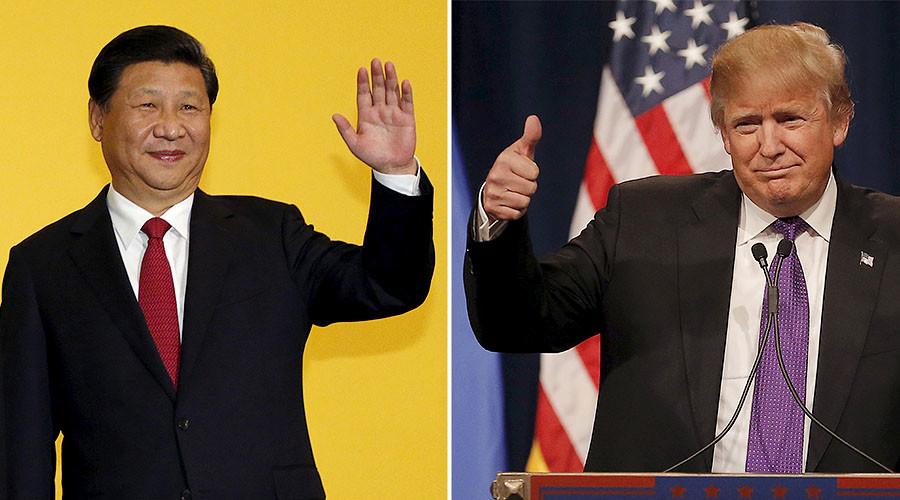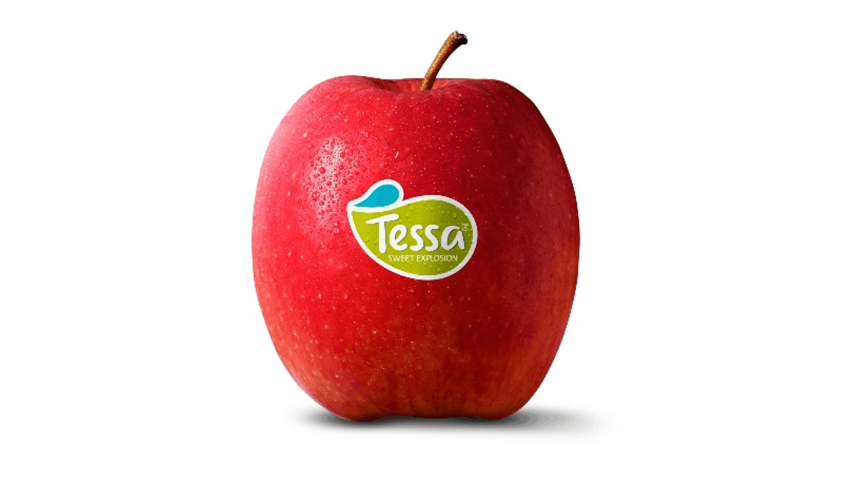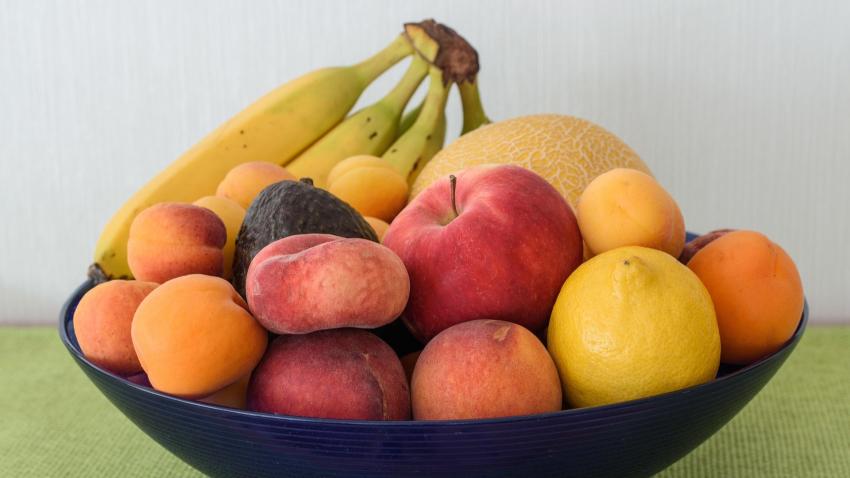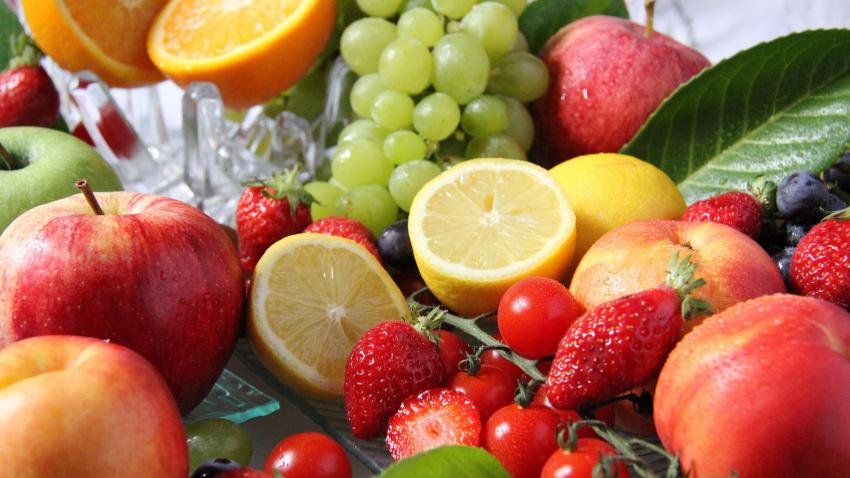You are here
Back to topAnalysis: Trump, Trade, and China’s Imported Fruit Market

Source: RT.com
The results of the 2016 U.S. Presidential election and the surprise victory of Donald Trump, now President-Elect Trump, over rival Hilary Clinton has continued to send significant shockwaves throughout the world. The political, economic, and social ramifications of Trump’s victory has upset any established semblance of a ‘global order’ and has sent American allies and partners alike scrambling to adjust to the new realities they face under an unpredictable Trump administration.
Despite taking a backseat since the election, trade had featured heavily during Trump’s campaign and he had campaigned on a platform of anti-globalization and opposition to free trade and trade agreements, most notably NAFTA and the TPP. The TPP, or the Trans-Pacific Partnership, was a proposed trade agreement between twelve Pacific nations representing 40% of global GDP such as the United States, Mexico, Peru, Japan, and Australia, and was aimed primarily at lowering barriers to trade, eliminating numerous tariffs, and co-operating on economic and regulatory policy. China was one of the notable exclusions from the TPP and tended to view the potential agreement as an extension of U.S. policy to contain and isolate China.
Trump’s promise to scrap TPP within his first 100 days in office has been seen as a welcome opportunity by Beijing to allow China to promote its own alternate plans, such as the Regional Comprehensive Economic Partnership (RCEP), focused on countries of Southeast Asia, and the much broader Free Trade Area of the Asia-Pacific (FTAAP), which includes countries from Southeast Asia and Latin America, as well as previous TPP signatories. Together with China’s current policy of favouring bilateral free trade agreements and eliminating select tariffs with increasingly-important trading partners such as Australia, Chile, and Peru, these Chinese-backed trade agreements have the potential to make China the undisputed leader in trade and investment in the Asia-Pacific region.
However, Trump has also reserved some of his harshest rhetoric on the economy and trade for China, threatening to formally label China a currency manipulator within his first 100 days in office and to impose a 45 percent tariff on Chinese exports to the United States, among other protectionist measures. If carried out, Beijing would no doubt retaliate and levy heavy tariffs on American exports to China, if not limiting or stopping them outright. China’s state-run Global Times newspaper has indicated that if such a tariff were imposed on Chinese goods, bilateral trade between the U.S. and China would be paralyzed and China would be prepared to halt and restrict certain imports of U.S. goods such as soybeans and maize, imports which were valued at over $15 billion in 2015. A trade war between the U.S. and China and the resultant surge in protectionism around the world would stifle global growth, which, according to the IMF, could result in global exports declining by up to 46% over the next 5 years.
In fresh fruit, the United States currently enjoys a trade surplus with China: in 2015, China’s imports of American fresh fruit and nuts totalled $524 million, whereas the United States only imported $159 million in fresh fruit and nuts from China.[1] China’s export of fresh pears to the United States, although accounting for a modest 11.4% of U.S. pear imports in 2015, has grown by 30% over the past 5 years, growth which could be stifled by increased tariffs. Chinese exports of dried fruit to the United States would also stand to lose out upon worsening trade relations, as China currently supplies over 44% of America’s total imports of dried fruit, namely dried peaches, pears, and papayas.
American fresh fruit exports to China are largely high quality, premium produce; in 2015, these accounted for only 3.5% of China’s total fruit imports by volume but 7% by value. Based on USDA 2013-2015 averages, the United States is the leading exporter of pears to China, accounting for 65.9% of all pears imported into China, and is one of the top three exporters of other temperate fruit to China, such as plums (21.6%), cherries (15.4%), grapes (20%), citrus (23.6%), and apples (21.8%).[2] Apple producers and industry experts in Washington State have already expressed their concern about the adverse effects a Trump presidency could have on their growing export business to China, which was up 36% so far this year over 2015 due in large part to cooperation between the two countries and agreements signed earlier last year which have allowed all varieties of apples from the U.S. access to the Chinese market.
If substantial barriers to trade are put up by the U.S., China’s current policy of diversification in the sourcing for its agricultural imports would prove to be most prudent. China currently imports apples from numerous countries outside the U.S., including Chile, France, New Zealand, Japan, South Africa, Argentina, and most recently Poland, with Germany and Italy actively seeking market access for their apple exports in China. Despite growth in American cherry exports to China over the past several years, Chile still accounted for 74% of total cherry imports in China in 2015, and with Turkish cherries to gain market access next year, more alternatives to U.S. cherries are available if necessary. Overall, countries in Europe and South America have become keener to export their produce to China and are eager to satisfy the growing demand for imported fresh fruit in China, which has been propelled by the increasingly-wealthy average Chinese consumer for whom concerns over food quality and safety is increasing their appetite for imported fresh produce.
By pursuing a policy of open trade, China could easily satisfy this demand and fill any gaps left by American exported produce with imports from other countries. Beijing could also use this opportunity to increase trade ties with America’s most-affected trade partners, such as Mexico. Mexico exported over $9 billion in fresh fruit and vegetables to the United States in 2015, but representatives from Mexico’s avocado industry have warned that increased tariffs and an American withdrawal from NAFTA would be ‘disastrous’ for both countries. Given China’s increased taste for imported Mexican avocados, which increased by 280% in 2015, any U.S. trade barriers placed on Mexican avocados would make it essential for Mexico look to alternate markets for its avocado exports, of which China is still a small but rapidly growing market. This also has the potential to facilitate enhanced cooperation between China and Mexico and could possibly lead to the start of negotiations on a China-Mexico FTA, especially due to Beijing’s general enthusiasm for bilateral trade agreements. Other countries with counter growing seasons to the U.S., such as Chile and Peru, are less worried about a Trump presidency and could even stand to benefit from the potential demise of NAFTA, as long as FTAs currently in place are not revised.
Cooperation between the U.S. and China in fresh fruit and in trade in general is the ideal economic position for both countries, a ‘win-win’ situation which Mr. Trump himself stated he does not disagree with. Despite the unpredictability of President-Elect Trump, he has staked his reputation on being, and is perhaps above all else, a businessman, and would be hard pressed to pass up a good deal if presented one by Beijing; a trade partnership based on mutual understanding and benefit could profit both the United States and China. Nonetheless, if Donald Trump follows through with the harshest parts of his campaign rhetoric and the U.S. turns inward and implements protectionist trade policies, China appears only too happy to adopt the mantle of global champion for free trade.
[1] Source: ITC “Bilateral trade between China and United States of America in 2015”

Source: RT.com













Add new comment